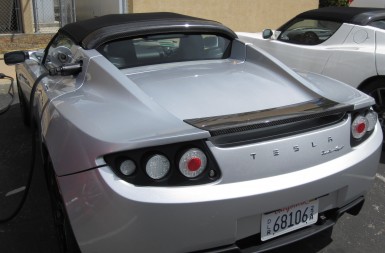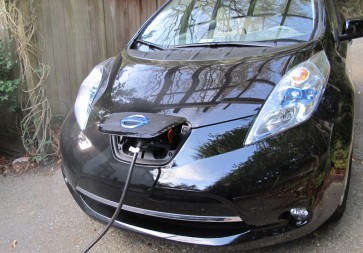As if range anxiety wasn't enough, do I also have to remember to keep my car charged -- even when I am not driving it? The answer is yes, but since I drive a Leaf, it's not quite as serious as owning a Tesla. A recent blog about Tesla's cars turning into "immovable bricks" if the battery ever becomes completely discharged, has set off a firestorm in the blogosphere. The claims say some Tesla owners have left their cars for as little as a few weeks and found their EVs could not be re-charged.
Tesla has been applauded for having some of the most advanced battery technology but it seems that there is one design flaw that can cause serious problems. If the charge in a Tesla’s lithium-ion batteries is fully depleted, the batteries are essentially destroyed and the car is left immobilized. The repair can be costly, some estimates say around $40,000 dollars for a new battery.
Tesla is downplaying the issue. In a statement released this week the company doesn't deny that the "brick problem" could happen but says its unlikely because they offer several safeguards against it including low charge warnings. "All automobiles require some level of owner care. For example, combustion vehicles require regular oil changes or the engine will be destroyed. Electric vehicles should be plugged in and charging when not in use for maximum performance. All batteries are subject to damage if the charge is kept at zero for long periods of time. However, Tesla avoids this problem in virtually all instances with numerous counter-measures." Tesla says its cars can be unplugged for weeks without reaching zero charge. But now who wants to test that claim?


